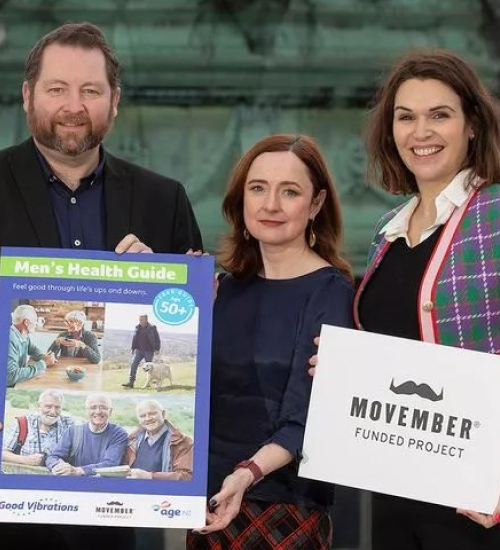
What can the Commissioner's legal team help me with?
The Commissioner is always concerned to hear from older people who are experiencing issues with public services and often provides assistance to individuals who need advocacy or legal support.
The cases that the Commissioner deals with directly are tested against strict case acceptance criteria as the Commissioner's office is not allowed to duplicate the work of another public body or organisation.
If you have a complaint or concern you should go through the organisation’s complaints process in the first instance. If they are unable to resolve your complaint satisfactorily then the Commissioner’s legal team may be able to help provided you are over 60 (or over 50 in exceptional circumstances) or acting on behalf of an older person.

How can the Commissioner's legal team help?
- Writing letters or making telephone calls on behalf of an older person.
- Attending meetings in an observer, advisory or advocacy role.
- Intervening directly if older people are having difficulties with a public body and have not been able to get it resolved.
- Encouraging the use of or provide access to alternative dispute resolution.
The Commissioner’s legal team has provided assistance on a wide range of issues
| Issues (by theme) | What we do |
|---|---|
| Carers matters | Assisting older carers and carers of older people to access and secure support for their own needs and appropriate services for the older people they care for. |
| Complaints about health and/or social care matters | Assisting older people and providing advocacy support in complaints about health and/or social care services where a complaint has not been resolved by the formal processes in place in Health and Social Care Trusts. |
| Complaints against public authorities | Assisting older people and providing advocacy support in complaints about a range of services where a complaint has not been resolved by the formal processes in place in the relevant public authority. |
| Consumer affairs including fraud, cold calls and scams | Assisting and providing advocacy support for older people who have been subject to sharp practice or dishonest trading practices. |
| Crime against older people | Assisting and providing advocacy support for older people who have been victims of crime and need additional support or are unaware of support from specialist victim support agencies. |
| Disability discrimination | Assisting and providing support or signposting in cases of discrimination on the basis of disability that is associated with or arises from older age. |
| Age discrimination | Assisting and providing support or signposting in cases of discrimination on the basis of age. |
| Financial matters including benefits, pensions, financial services, insurance, and protection from financial abuse | Assisting older people and providing advocacy support in complaints about a range of services where a complaint has not been resolved by the formal processes in place in the relevant public authority or commercial company. |
| Housing and planning issues, including sheltered housing and supported living complaints | Assisting older people and providing advocacy support in complaints about a range of services where a complaint has not been resolved by the formal processes in place in the relevant public authority. |
| Human Rights issues | Considering instances of human rights violations on the basis of age, or of importance to older people. |
| Nursing and residential homes | Assisting older people and providing advocacy support in complaints about care home services where a complaint has not been resolved by the formal processes in place in the private company or by the Health and Social Care Trust that has commissioned the care. |
| Safeguarding and protection from risk of harm | Assisting older people who are at risk of harm. Providing advocacy support and signposting to older people and carers in relation to formal and informal investigations into allegations of abuse. |
| Transport | Assisting older people and providing advocacy support in complaints about a range of services where a complaint has not been resolved by the formal processes in place in the relevant public authority. |
| Whistleblowing | Assisting employees who have provided information that highlights matters of concern in the treatment of older people in statutory or private care settings. |
Need our help?
If you think that the Commissioner’s office may be able to help, or would like information on which organisation is best placed to resolve your complaint please call 028 9089 0892. Lines are open from Monday to Friday, 9am-5pm.
Alternatively you can email COPNI - visit the contact us section for details.
How we have helped others
The following are some examples of individual cases undertaken by the Commissioner’s legal team.




